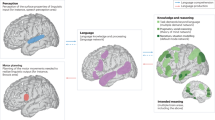Abstract
SIR ARTHUR EDDINGTON has not met my point (NATURE, Sept. 20, p. 341). Assuming, in accordance with his claim, that criteria could exist which would determine that a law was applicable to certain experiences, I asked what he would do if such experiences were found to violate an “inviolable” law. He has related what Adams and Leverrier did when experience afforded an opportunity of testing a law not held to be inviolable. My question still remains.
This is a preview of subscription content, access via your institution
Access options
Subscribe to this journal
Receive 51 print issues and online access
$199.00 per year
only $3.90 per issue
Buy this article
- Purchase on Springer Link
- Instant access to full article PDF
Prices may be subject to local taxes which are calculated during checkout
Similar content being viewed by others
References
"Through Science to Philosophy", pp. 93–95 (Oxf. Univ. Press, 1937).
Author information
Authors and Affiliations
Rights and permissions
About this article
Cite this article
DINGLE, H. The Philosophy of Physical Science. Nature 148, 503–504 (1941). https://doi.org/10.1038/148503b0
Published:
Issue Date:
DOI: https://doi.org/10.1038/148503b0
Comments
By submitting a comment you agree to abide by our Terms and Community Guidelines. If you find something abusive or that does not comply with our terms or guidelines please flag it as inappropriate.



